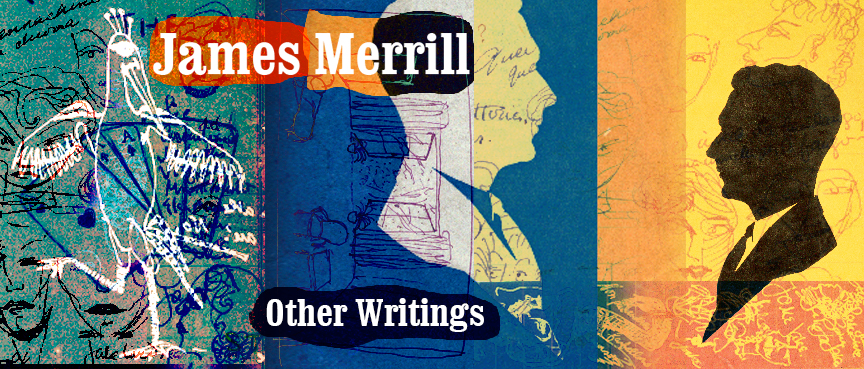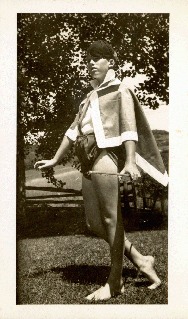James Merrill, Playwright
Of James Merrill’s abilities as a playwright, opinions range from the acclaim of Tennessee Williams, who hailed The Bait as a masterpiece, to the almost unanimous contempt of New York theatre critics, who branded The Immortal Husband with epithets such as “aggressively undramatic.” Merrill’s own estimates of his talents were equally varied. In a letter written in January, 1954, he speaks ecstatically of a “glorious rehearsal” for the upcoming off-Broadway production of The Immortal Husband , and less than a month later, after a lackluster opening, confides to his mother that it is “very, very bad and a source of daily regret.” The corpus of Merrill’s drama is relatively small in scope: a completed full-length play, The Immortal Husband , a handful of one-acts such as The Bait , and a few abandoned projects such as The Brain Bank that survive only in skeletal drafts. There were plans for an opera based on Mirabell: Books of Number for which Merrill was solicited to write the libretto, but this was never seriously pursued.
Attending operas regularly before he could even walk may have been what piqued Merrill’s interest in theatre. His performing arts debut came at age 11 when he directed and starred in the Jimmy Merrill Marionettes’ production of Charles Dickens’ The Magic Fish-bone . As an adolescent he tried acting and landed the role of Puck in a high school production of A Midsummer Night’s Dream , but eventually traded his cape and archery bow for a pen. Puppets, however, would remain somewhat of a life-long fascination for him; for many years he generously endowed a troupe called The Little Players and even wrote a bizarre verse play, The Image-Maker , about a Mexican puppet-maker whose creations come to life after he goes to sleep each night.
Merrill’s most ambitious piece is The Immortal Husband ( Tithonusin earlier drafts). He based the story on an obscure Greek myth about a young man whose looks charm the goddess of the dawn. She grants him eternal life, but neglects to provide him with eternal youth. The oversight, however contrived, establishes the framework for some wonderful lyrical monologues and poignant moments of dramatic irony. As is generally true of the first efforts of most playwrights, Merrill’s idols haunt the stage as the story unfolds, leaping forward in time and across continents. It opens in early Victorian England and features some Wildean banter, moves to a bleak Chekovian second act in fin de siecleRussia, and comes to its inevitable unhappily-ever-after ending in Merrill’s own milieu, post-war Manhattan. According to a few accounts, some members of the audience felt as if they, like the protagonist, were experiencing accelerated aging, but others found it clever and brimming with pathos.
As for his most successful one-act play, The Bait, Merrill makes an attenuated and self-conscious metaphorical connection between fishing and a woman who is fishing for Mr. Right. At times the poet breaks through the surface; characters speak in loosely metered sextains as in the following passage, which exemplifies the play’s style.
Instead, neither caring nor careless, she chose to fish,
To fish using as bait my only life,
Waiting in what suspense for the inevitable pain
To swallow me where I hang in her scorn’s water.
And indeed, a recognition with phosphorous eyes
Glides slowly upward from the depths of myself.
At the risk of damning with faint praise, one might say that these plays exhibit potential. But it seems that Merrill’s commitment to his poetry left him little time to develop his skills as a dramatist beyond these sometimes beautiful dabblings. Nonetheless they are worth reading, if only for the few diamonds that sparkle amongst the rhinestones.
Todd Borlik

